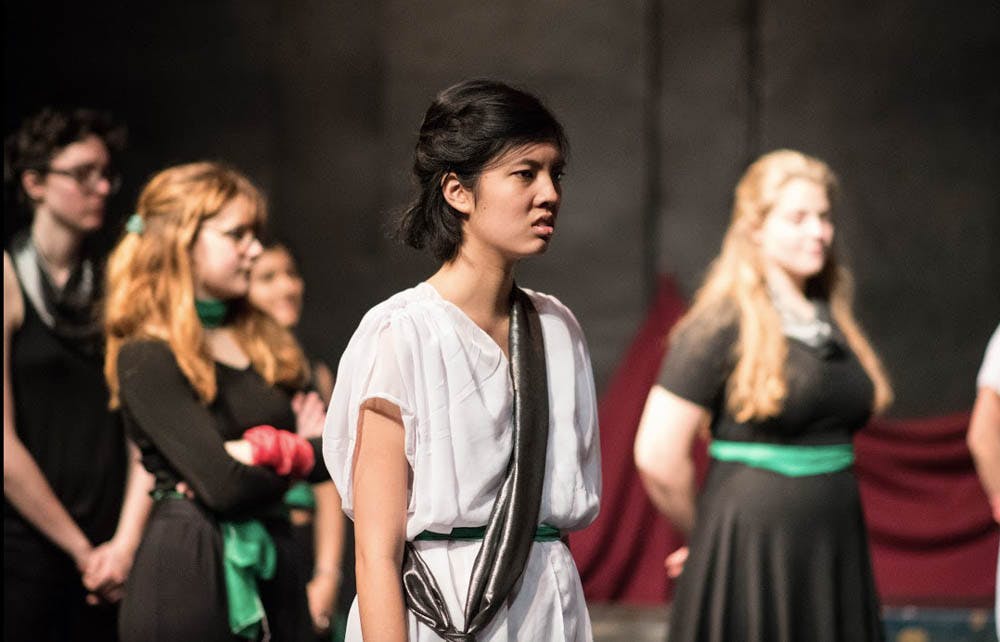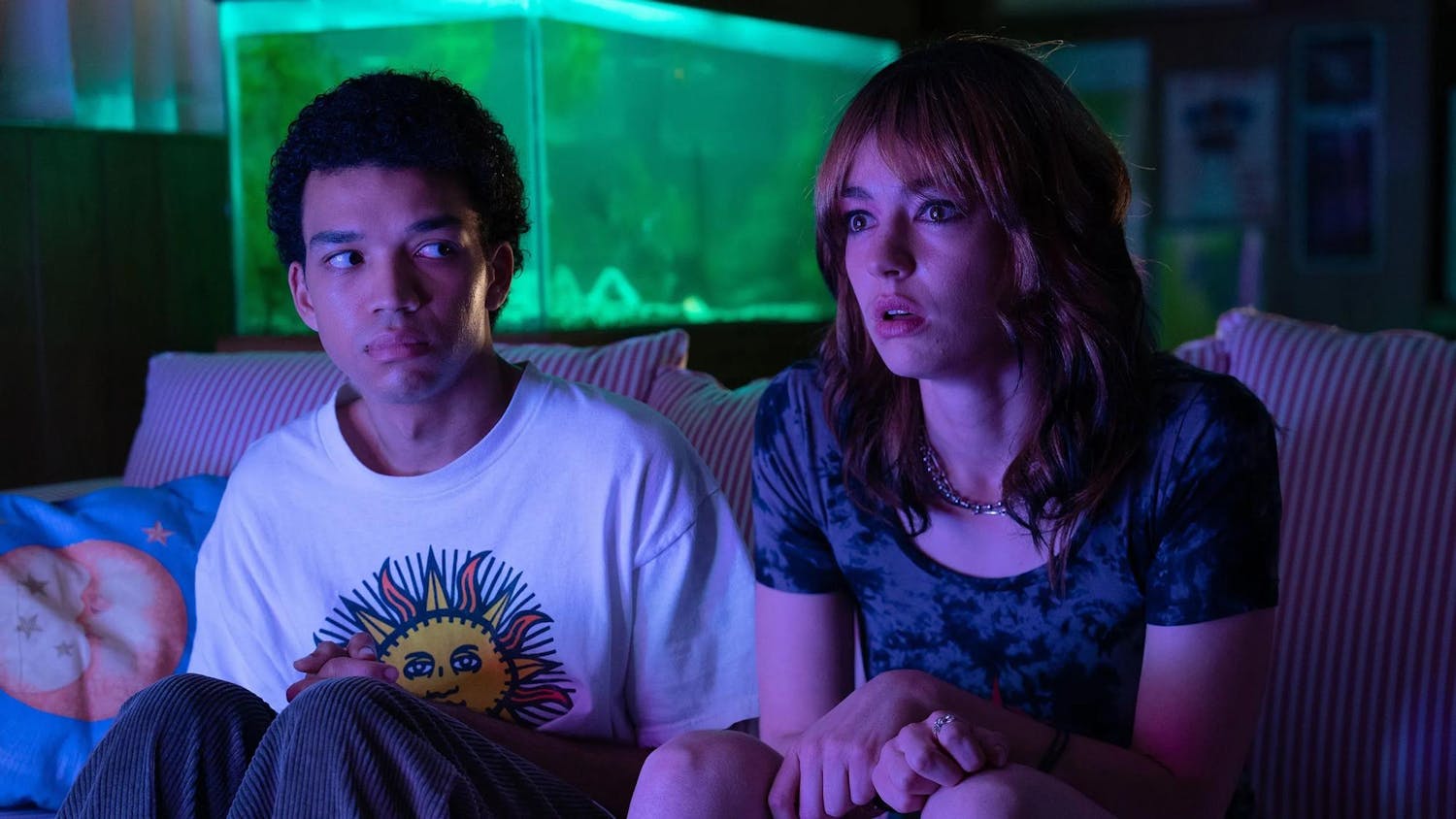Production Workshop’s imagining of “Julius Caesar” exudes power — evident from the play’s very description:
“This is (not) Rome — Haec Roma nostrarum est:
This is a space (un)recognizable. Here we are womxn, femmes and more. Here, we are of many races. Here we use words like ‘lovers,’ ‘sisters’ and ‘countrywomxn’. Here is space enough to hold all our love and all our violence.
This is (not) Rome — Here is our Rome.”
Directed by Caroline Sprague ’20, “Julius Caesar: Femmes, Romans, Countrywomxn” is a production of “Julius Caesar” set in an “intersectional, all-femme” world, according to PW’s website. While the work follows the original plot line of Julius Caesar’s assassination, characterizing it as just another conventional production would be far from accurate. Indeed, its distinct femme-centric approach is in stark contrast to the original texts of most Shakespearian works, in which male characters are primarily designated lead roles — a gender imbalance that is especially evident in “Julius Caesar.”
The word “womxn” — instead of “women” — was intentionally used to undermine the male-centric mindset that underpins the world, said stage manager Bella Cavicchi ’21.
This interpretation of Julius Caesar was conceptualized by Sprague, whose guiding principle was “why not,” said Beth Pollard ’21, assistant director. “Why not have a full womxn- and femme-identifying production of ‘Julius Caesar’? There’s no reason why there shouldn’t be,” Pollard said. While the absence of men may seem incongruous in Caesar’s Rome, Cavicchi describes the setting “as a Rome where your expectations are going to be switched, but for the better.”
Despite its novel conceptualization, the production tries to preserve as much of the integrity of the original plot and character development as possible, Pollard said. The names of all the characters, for instance, remained unchanged. “Those are men in history and we didn’t want to change those names because they have such significance,” Pollard said. Yet, all masculine gender pronouns have been reversed to fit the femme-centered production. For instance, he becomes she, countrymen becomes countrywomxn and lords becomes ladies, Pollard explained. Stereotypically masculine motifs, such as swords, daggers and other phallic symbols have been omitted from the production too. Instead, the weapons used by the characters in this production take the form of cloth, bandages and fabric — items traditionally associated with womxn, Pollard said. Violence is a salient theme in the bloody assassination of Julius Caesar, yet “violence is also typically seen as (a) man’s domain,” Pollard said. “We wanted to understand how womxn act in conflict — what tools do womxn use that are different from men?”
Erin Malimban ’19, who plays Brutus in the production, further describes how the violence in the show is incredibly stylized. The characters often use bandages that are typically used for boxing but are painted red, she said. One character holds a bandage and puts it on another’s clothes. Then, the character pulls the bandage out, “so there’s a string connecting (the two characters) and it looks like blood.”
The production’s impressive onstage conceptualization is complemented by the actresses’ offstage identities. “There are so many identities in the room,” Malimban said. Some of the people in the cast identify as non-binary, others identify as queer and others as people of color. “We (don’t) want to erase anyone’s identities, so (we) just bring them to the character instead of pretending they’re not there,” she said.
For instance, Malimban described how she brought her Filipino-American identity to her portrayal of Brutus: “There are some times when I make noises that are from my Filipino household, just to tell someone to be quiet — it’s just like a non-verbal sound or like a motion.” This process of embracing one’s offstage identity onstage makes each character specific to its actor, Malimban said. “You bring small things that you’re used to in your culture and in your life to the performance without it being a huge deal.”
Both onstage and offstage, the production explores the idea of womxn-identifying people finding “catharsis” in life, according to Malimban. “The entire process has been this constant questioning of how we are people outside of being non-male and how we relate to each other singularly,” Malimban explained.
“And when audience members walk away, we want them to feel the catharsis with us,” Cavicchi said.
What’s really special about this production is that it doesn’t have a moral for the audience, Malimban said. “It’s not like we’re trying to teach you something. It’s more like we really care about this and we care about each other and we invite you to care and think with us.”
PW’s “Julius Caesar” ran last Friday through Monday at the Downspace.





